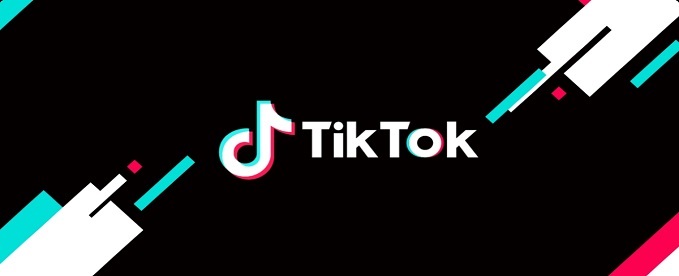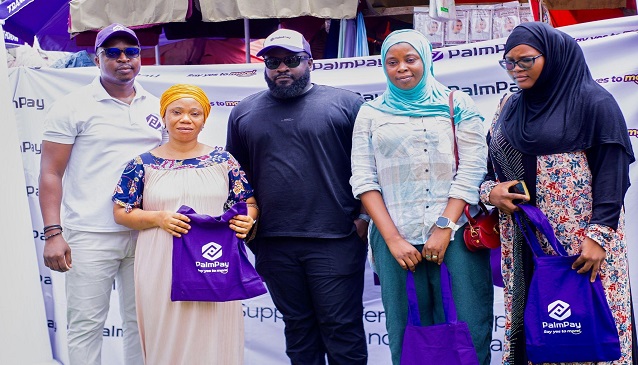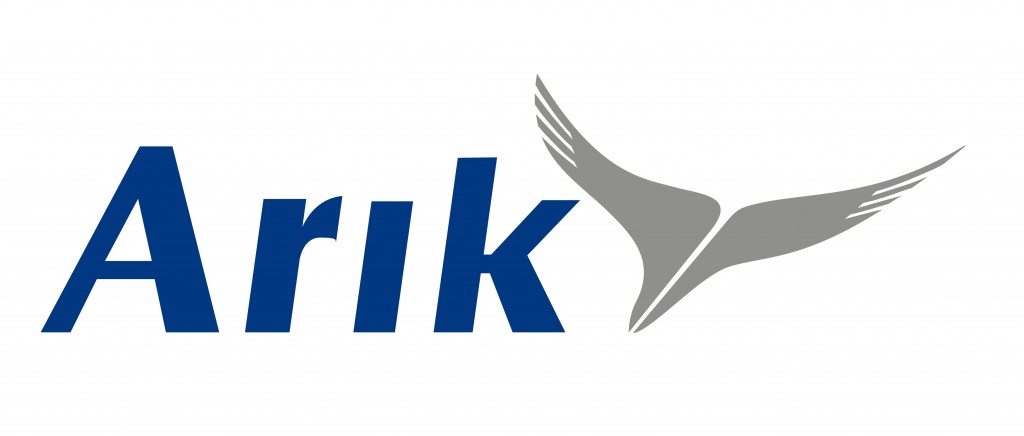News
Why U.S Wants to Ban TikTok

Some US lawmakers have introduced new legislation that aims to ban TikTok from operating in the United States.

The new bill by Sen. Marco Rubio, the top Republican on the Senate Intelligence Committee, and a bipartisan pair of congressmen in the House, reflects the latest move by US policymakers against the Chinese-owned short-form video app.
There have been reports that TikTok lacks ability to safeguard US user data from the Chinese government.
The proposed legislation on Tuesday December 13, would “block and prohibit all transactions” in the United States by social media companies with at least one million monthly users that are based in, or under the “substantial influence” of, countries that are considered foreign adversaries, including China, Russia, Iran, North Korea, Cuba and Venezuela.
The bill specifically names TikTok and its parent, ByteDance, as social media companies for the purposes of the legislation.
The legislation comes as a wave of states led by Republican governors have introduced state-level restrictions on the use of TikTok on government-owned devices. In the past two weeks, at least seven states have introduced such measures, including Maryland, South Dakota and Utah.
For years TikTok has been having discussions with the US government on a potential deal that may allow the company to address the national security concerns and to continue serving US users.
TikTok has previously said it doesn’t share information with the Chinese government and that a US-based security team decides who can access US user data from China. TikTok has also previously acknowledged that employees based in China can currently access user data.
“The federal government has yet to take a single meaningful action to protect American users from the threat of TikTok,” Rubio said in a statement.
“There is no more time to waste on meaningless negotiations with a CCP-puppet company. It is time to ban Beijing-controlled TikTok for good.”
Hilary McQuaide, a spokesperson for TikTok, reacted in a statement that read;
“It’s troubling that rather than encouraging the Administration to conclude its national security review of TikTok, some members of Congress have decided to push for a politically-motivated ban that will do nothing to advance the national security of the United States.”
“We will continue to brief members of Congress on the plans that have been developed under the oversight of our country’s top national security agencies—plans that we are well underway in implementing—to further secure our platform in the United States,” McQuaide added.
Tuesday’s bill is not the only federal legislation to target TikTok. Last year, US lawmakers proposed a law that would ban TikTok usage by federal agencies, and Rubio introduced a bill that would force some app makers to disclose ownership information.
Already, the US military, the State Department and the Department of Homeland Security have restricted TikTok from devices under their control.
News
UK Minister for Africa Visits Nigeria to Deepen Strategic Partnership

The United Kingdom’s Minister for Africa, Lord Collins of Highbury, has concluded a three-day visit to Nigeria, aimed at reinforcing the UK-Nigeria Strategic Partnership.

He reaffirmed the UK Government’s strong commitment to deepening trade and investment ties between the United Kingdom and Nigeria.
During his visit, Lord Collins met with senior Nigerian government officials, business leaders, civil society representatives and United Nations agencies.
These engagements underlined the UK’s long-term drive to support Nigeria’s prosperity and stability while deepening bilateral cooperation for transformative growth across our shared priorities.
A key highlight of the visit was Lord Collin’s bilateral meeting with Nigeria’s Minister of Foreign Affairs, Yusuf Tuggar, in which both parties reaffirmed their unwavering commitment to strengthening economic ties and promoting regional security. The Minister was joined by the UK’s Trade Envoy to Nigeria, Florence Eshalomi MP.
Lord Collins also met with Deputy Speaker of the House of Representatives, Hon. Benjamin Kalu, and discussions focused on opportunities to strengthen engagement between UK’s parliament and Nigeria’s National Assembly and the importance of furthering women’s participation in politics.
Speaking on his visit, the UK Government’s Minister for Africa, Lord Collins said: “Nigeria and the UK share a rich, ambitious relationship: one that is deeply rooted in respect.
“Our Strategic Partnership is at the forefront of this, and my visit has focused on how our countries can continue deepening our cooperation on key issues such as trade and investment to drive economic growth and deliver prosperity for us all.”
The Minister held discussions with United Nations representatives on the ongoing reform of the UN system, its implications for Nigeria and how the reform can effectively support those most in need, particularly in Northeast Nigeria, whilst also contributing to global humanitarian efforts.
Lord Collins also met with civil society leaders to discuss electoral integrity and governance reforms, reinforcing the UK’s commitment to democratic values and community empowerment.
He later visited Nigeria’s Anti-Kidnap Fusion Cell: a key security initiative supported by UK expertise through the National Crime Agency and the Integrated Security Fund, which plays a vital role in enhancing local safety and combating serious crime.
Also commenting on the visit, the British High Commissioner to Nigeria, Dr Richard Montgomery, said: “Driving growth is central to the UK’s foreign and development policy. Lord Collins’ visit to Nigeria underscores the UK’s unwavering commitment to deepening our shared prosperity through expanded trade and investment. We are proud to stand alongside Nigeria as it forges a resilient and dynamic economy.”
This visit underscores the UK’s enduring partnership with Nigeria – built on mutual respect, shared goals, and a vision for a prosperous future for both nations.
News
PalmPay Launches CSR Initiatives to Empower Women, Foster Financial Literacy in Northern Nigeria

In a strategic move to expand financial inclusion in Nigeria, leading mobile banking platform, PalmPay has launched a series of CSR programs across Kano and Kaduna. The CSR initiative named “Passing the Baton” represents the brand’s commitment to passing on knowledge and providing the resources individuals and businesses need to achieve financial independence and drive economic empowerment.

This initiative is a bold move by PalmPay to bridge the opportunity gap in the North by providing financial literacy training and micro-business branding support to 5,000 women-owned businesses in Kano and Kaduna. This strategic initiative reaffirms PalmPay’s commitment to inclusive development and economic empowerment, particularly in underserved regions.
“At PalmPay, we believe that real financial inclusion must be far reaching and cover the grassroots,” said Chika Nwosu, Managing Director of PalmPay. “Our new CSR program is focused on supporting gender equity by equipping women with the knowledge, tools, and visibility they need to thrive as entrepreneurs in their communities.”
Through this initiative, beneficiaries will receive free health insurance, hands-on training workshops, enhanced store branding to boost visibility, and branded merchandise to strengthen their business presence.
The initiative is part of PalmPay’s broader strategy to extend its innovative solutions, expand its footprint in Northern Nigeria, while building sustainable partnerships with local stakeholders for long-term impact.
In a show of support, His Royal Highness, the Emir of Kano, Dr. Muhammadu Sanusi II, has endorsed the initiative, calling on other stakeholders to join forces with PalmPay in ensuring the North benefits fully from the growing digital economy. PalmPay has received commendation from community stakeholders, as the initiative aims to serve as a model for similar projects across other northern states.
As PalmPay continues to scale across Nigeria, the company remains committed to bridging the financial inclusion gap and empowering underserved groups, particularly women and youth, through its innovative solutions and impact initiatives.
News
EFCC Witness Admits Writing Off Arik Air’s $2.3M Debt Amid N76Bn Fraud Trial



 E-Financial3 days ago
E-Financial3 days agoSEC Alerts Public on Silverkuun, Trending Dubious Investment Schemes

 Telecom3 days ago
Telecom3 days agoGlo, Huawei, Communications Ministry Bring Digital Services to Abuja Village

 General News3 days ago
General News3 days agoTripoint Travels Hosts Pre-GEC Brunch for Nigerian Delegates Ahead of Global Entrepreneurship Congress 2025

 News3 days ago
News3 days agoPalmPay Launches CSR Initiatives to Empower Women, Foster Financial Literacy in Northern Nigeria

 E-Financial3 days ago
E-Financial3 days agoAfrica Cross-border Payments Set to Hit $1 trillion by 2035

 Telecom3 days ago
Telecom3 days agoExperts @ ABoICT 2025 Warn of Digital Disaster Risks in Nigeria Without AI Governance

 General News2 days ago
General News2 days agoUche Uzoebo, SANEF CEO Makes Case for More Financial Inclusion Strategies Targeting Women

 E-Financial3 days ago
E-Financial3 days agoSANEF, CIBN Partner to Expand Agency Banking Certification



























